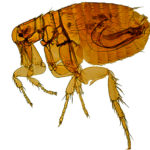Introduction
- What is a Chihuahua?
- History of the Chihuahua breed
The article is about the Chihuahua breed of dog. It discusses their history, appearance, personality, health, and care. Chihuahuas are the smallest breed of dog in the world, and they are known for their big personalities. They are intelligent and loyal dogs, but they can also be stubborn and independent. Chihuahuas are susceptible to a number of health problems, including arthritis, hip dysplasia, and hypoglycemia. They need regular grooming and exercise to stay healthy. With proper care, Chihuahuas can live long and happy lives.
The Chihuahua is the smallest breed of dog in the world and is named after the state of Chihuahua in Mexico, where it was discovered in 1850. Some scholars believe the Chihuahua to be descended from Chinese hairless dogs who may have crossed over from Asia to Alaska on a land bridge before continental separation created the Bering Strait and bred with the ancient Techichi dog, creating the modern-day Chihuahua. But due to the lack of archaeological proof to support this theory, it was later believed that Chihuahuas were brought to Mexico by settlers from Spain. The American Kennel Club registered its first Chihuahua in 1905.
Appearance
- Size
- Weight
- Coat
- Color
There are two types of Chihuahua. One of which has a smooth, soft glossy coat, which covers the whole body except the head and ears. The other version has a long coat with an undercoat. This type of coat could be curly or flat. The Chihuahua falls under the AKC’s toy category. Generally, their height is 6 to 10 inches at the shoulders and their weight is 2 to 6 pounds. Chihuahuas come in various colors, from plain white to solid black and spotted, or other colors like silver, blue or gray, chocolate, fawn or tan, tricolor-chocolate, blue or black with tan or white markings, merle, and brindle, and each of the colors varies in tone and shade. Chihuahuas are mostly known for their small body and large, sharp ears. A Chihuahua’s nose is usually short and slightly pointed. They have lean jaws and cheeks and blue, mole, or chocolate-colored noses. However, a pink nose is permissible in blonde Chihuahuas. The tail is either up or curled in a loop with the tip of it slightly touching the back.
Many Chihuahua owners often are confused by the variety of dog foods available on the market. They often complain that their pets suffer from intestinal disorders, itching, dandruff, allergies, etc. As a responsible Chihuahua owner, you should provide your pet with meals containing proteins, carbohydrates, vitamins, fatty acids, and minerals. A proper balance of these components will not only keep the dog healthy and happy but it will also save you from the hassles and frustration of frequent vet visits and costs. Dry foods usually help to keep the dog’s teeth clean and also, help to work his jaws. 
Personality
- Intelligence
- Loyalty
- Stubbornness
- Independence
Chihuahuas are prized for their devotion, ferocity, and personality. Their curious nature and small size make them easily adaptable to a variety of environments, including the city and small apartments. Chihuahuas are usually intelligent and independent by nature. Some dogs are bright and can learn quickly, while others are more stubborn and obstinate. Some are outgoing and friendly towards strangers while others are withdrawn and aloof. Whatever your Chihuahua’s attitude now, your love, care, and training can change your dog completely, from an unruly, out-of-control dog to the best dog in the neighborhood. Chihuahuas, in general, are delightful characters and are lively, entertaining, and very loyal. They crave constant love and attention from you and your family members. 
Health
- Common health problems
- How to care for a Chihuahua’s health
Chihuahuas get sick from parasites, viruses, bacteria, protozoa, and fungi. In some cases, these diseases and infestations are fatal unless caught early and treated. Sometimes they sow the seeds of death or debilitation years down the road by causing chronic illness or damaging organs. Fortunately, veterinary researchers have developed drugs and treatments that reduce the occurrence and effects of many diseases and parasites, but they do not eradicate the diseases, they only hold them at bay. Immunizing Chihuahuas against disease is a simple process. 
Chihuahuas can also get sick from debilitating diseases like arthritis and hip dysplasia but are most common in older Chihuahuas. Chihuahuas are also very susceptible to hypoglycemia and diabetes. Before trying any treatment options, you should get an accurate diagnosis of your Chihuahua, which is usually done by a physical examination combined with x-rays performed at your veterinarian’s. Treatment and prevention are personal choices but involve several options when considering your Chihuahua’s health. You can either go for modern-day medicines or homeopathic treatments.
Care
- Grooming
- Exercise
- Diet
Proper Chihuahua health care also involves grooming. You will often notice many Chihuahuas with dirty, rough, or greasy hair, their nails too long, teary eyes, and dirty ears. Obviously, these Chihuahuas are not well-groomed. Remember, a well-groomed Chihuahua not only looks good, but he feels good from within as well. This paves the way for better health for your Chihuahua. Incredibly enough after grooming, chihuahuas can look very different and seem to have more pep. Ticks, fleas, mange, and other parasites often breed on a Chihuahuas coat. With regular grooming, you can avoid this.
Physical exercise is important for your Chihuahua. Puppies, adolescents, healthy adults, and senior pets alike need lots of regular daily workout sessions to maintain their health. The type of exercise depends on the age and fitness of your Chihuahua and your own lifestyle. Chihuahuas are adaptable and are happy to play Frisbee in the park or take long walks in the neighborhood. Daily exercise is recommended unless the weather is especially dangerous or a medical problem limits your Chihuahua’s activity. If there is a medical problem, consult your veterinarian about exercise limitations. Keep in mind that obese Chihuahuas and those with heart and lung diseases may have a problem, and be sure to consult your vet before starting a new regime.
You know your pet best and can often notice subtle early warning signs of illness that someone else may not detect. If you observe symptoms or other signs that worry you, call your veterinary immediately. The safest approach would be to have your pet examined before it is too late. Although figures often vary, as with any breed, the average lifespan for a Chihuahua is approximately 8 to 18 years of age.
Although an owner needs to take great care of a Chihuahua it will be your best friend and faithful companion for their life. And will give the owner great joy if taken care of properly.
Source by Penny Taylor






